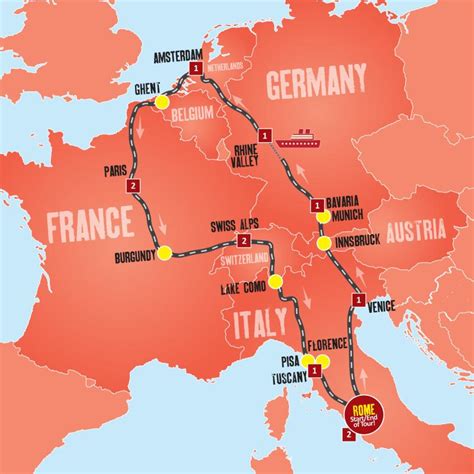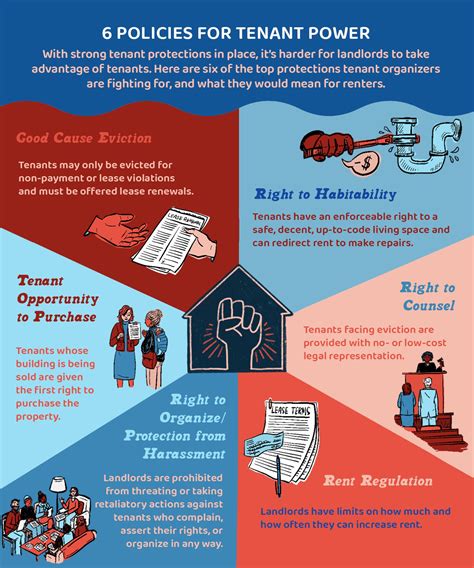
An American expatriate who moved to Europe seeking refuge from U.S. politics says she’s discovered political polarization and divisive ideologies are not unique to America, a “terrifying realization” that has challenged her initial hopes for a politically neutral haven. The expat, identified as Liz, shared her experiences in a recent essay, detailing how political tensions and stark ideological divides exist across the Atlantic, albeit manifesting in different forms.
Liz, who relocated to Europe (the specific country wasn’t identified) with the expectation of escaping the intense political climate of the United States, found that Europe also grapples with significant political challenges, albeit expressed through different cultural and historical contexts. “I moved to Europe to escape U.S. politics, and I’ve had a terrifying realization: There is nowhere to escape,” Liz wrote.
While the specific country in Europe was not named, her observations highlight a broader trend of political fragmentation seen across many nations in the European Union. Instead of finding a politically detached environment, Liz encountered debates surrounding immigration, national identity, economic policies, and the role of the EU itself, often mirroring the intensity and divisiveness of political discourse she had hoped to leave behind.
Liz emphasized that, while the specific issues might differ, the underlying dynamics of political polarization, including the entrenchment of opposing viewpoints and the difficulty of finding common ground, are strikingly similar to those in the United States. Her initial optimism was replaced by a more nuanced understanding of global political realities.
The realization, while unsettling, prompted her to reconsider her understanding of political landscapes and highlighted the pervasiveness of political tension in modern societies. The “terrifying realization” also led her to appreciate the complexities of global politics and the recognition that societal divisions are not confined by geographical boundaries.
Her observations open up a broader discussion about the universality of political strife and the challenges of finding genuine political neutrality in an interconnected world. The article serves as a reminder that escaping political tensions may not be as straightforward as relocating to a different country, and that engagement with political issues is often a necessary part of living in any society.
Liz’s experience underscores the importance of understanding political dynamics across different cultures and recognizing that political engagement is a global phenomenon.
Detailed Analysis and Context
Liz’s experience represents a common aspiration among individuals disillusioned with the political climate in their home countries: the search for a more harmonious and less polarized environment elsewhere. The appeal of Europe, with its diverse cultures, social welfare systems, and perceived emphasis on international cooperation, often attracts those seeking an alternative to the perceived extremes of American politics. However, Liz’s story highlights the complexities of this pursuit and the often-unanticipated realities of political life in other nations.
One key aspect of Liz’s experience is the recognition that political polarization is not solely an American phenomenon. While the specific issues driving political divisions may differ from country to country, the underlying dynamics of ideological entrenchment, partisan animosity, and the struggle for political power are present in many societies. In Europe, these divisions often manifest in debates over immigration, national identity, economic inequality, and the role of the European Union.
Immigration, in particular, has become a highly contentious issue in many European countries, fueling the rise of populist and nationalist movements. Concerns about the integration of immigrants, the impact on national culture, and the strain on social welfare systems have led to heated debates and contributed to political polarization. The rise of right-wing parties in countries such as France, Germany, Italy, and Austria reflects the growing anxieties surrounding immigration and national identity.
Economic inequality is another significant source of political tension in Europe. While many European countries have robust social safety nets, income inequality has been rising in recent decades, leading to resentment and disillusionment among those who feel left behind. The rise of populist movements on both the left and the right reflects the growing discontent with economic policies and the perception that the benefits of globalization have not been shared equally.
The role of the European Union is also a source of ongoing debate and division. While the EU has fostered economic integration and cooperation among its member states, it has also faced criticism for its perceived democratic deficit and its impact on national sovereignty. The Brexit vote in the United Kingdom highlighted the deep divisions within Europe over the future of the EU and the balance between national and supranational authority.
Liz’s experience also underscores the importance of understanding the historical and cultural context of political divisions. Political debates in Europe are often shaped by historical grievances, national identities, and cultural values that are different from those in the United States. For example, the legacy of World War II and the Holocaust continues to shape political discourse in Germany, while the history of colonialism and immigration influences political debates in France and the United Kingdom.
Understanding these historical and cultural contexts is crucial for anyone seeking to understand the complexities of European politics. It requires more than just a superficial understanding of current events; it requires a deep appreciation of the historical forces that have shaped the political landscape.
The Illusion of Escape and the Reality of Engagement
Liz’s “terrifying realization” is not necessarily a cause for despair but rather an invitation to engage with the complexities of political life in a more informed and nuanced way. It highlights the illusion of escaping political tensions by simply relocating to a different country. In an interconnected world, political issues transcend national borders, and the dynamics of political polarization are present in many societies.
Instead of seeking to escape political tensions, individuals may find greater fulfillment in engaging with political issues in a constructive and meaningful way. This can involve participating in political debates, supporting organizations that promote dialogue and understanding, and working to bridge divides within their communities. It can also involve educating oneself about the historical and cultural contexts of political divisions and developing a more nuanced understanding of different perspectives.
Liz’s story also underscores the importance of critical thinking and media literacy. In an era of fake news and partisan propaganda, it is crucial to be able to distinguish between reliable information and misinformation. This requires developing the skills to evaluate sources, identify biases, and critically analyze arguments.
Ultimately, Liz’s experience is a reminder that political engagement is an essential part of living in any society. While political tensions may be unavoidable, individuals can choose to engage with them in a way that promotes understanding, dialogue, and constructive action.
Expanding on Specific Issues
To further illustrate the complexities of European politics, it is helpful to examine some of the specific issues that are driving political divisions in more detail:
-
Immigration: As mentioned earlier, immigration is a highly contentious issue in many European countries. The influx of refugees and migrants from the Middle East, Africa, and Asia in recent years has strained social welfare systems and fueled anxieties about national identity. Right-wing parties have capitalized on these anxieties, advocating for stricter immigration controls and anti-immigrant policies. However, other political actors argue that immigration is essential for economic growth and cultural diversity. They advocate for more humane and welcoming policies towards immigrants. The debate over immigration is often framed in terms of competing values, such as national security, economic prosperity, and human rights.
-
National Identity: The question of national identity is closely linked to the debate over immigration. Many European countries are grappling with the challenge of integrating immigrants into their national cultures while preserving their own unique identities. Some argue that immigrants should assimilate fully into the dominant culture, while others argue that they should be allowed to maintain their own cultural traditions. The debate over national identity is often intertwined with questions of language, religion, and cultural values.
-
Economic Inequality: Economic inequality is a growing problem in many European countries. While many European countries have robust social safety nets, income inequality has been rising in recent decades, leading to resentment and disillusionment among those who feel left behind. The rise of populist movements on both the left and the right reflects the growing discontent with economic policies and the perception that the benefits of globalization have not been shared equally. Some argue that government intervention is necessary to reduce income inequality, while others argue that free markets are the best way to promote economic prosperity for all.
-
The European Union: The European Union is a complex and controversial institution. While it has fostered economic integration and cooperation among its member states, it has also faced criticism for its perceived democratic deficit and its impact on national sovereignty. The Brexit vote in the United Kingdom highlighted the deep divisions within Europe over the future of the EU and the balance between national and supranational authority. Some argue that the EU is essential for maintaining peace and prosperity in Europe, while others argue that it undermines national democracy and accountability.
The Importance of Nuance and Context
Liz’s experience underscores the importance of approaching political issues with nuance and context. It is easy to fall into the trap of simplistic generalizations and stereotypes, but doing so can lead to misunderstandings and misinterpretations. Understanding the historical, cultural, and economic factors that shape political debates is essential for engaging with them in a constructive and meaningful way.
It is also important to recognize that there are many different perspectives on any given political issue. Listening to and understanding these different perspectives is crucial for finding common ground and building bridges across divides. This requires a willingness to challenge one’s own assumptions and biases and to engage in respectful dialogue with those who hold different views.
Conclusion
Liz’s “terrifying realization” is a reminder that political tensions are a universal phenomenon. Escaping them is not as simple as moving to another country. Instead, it requires a commitment to engaging with political issues in a more informed, nuanced, and constructive way. It requires understanding the historical and cultural contexts of political divisions, listening to different perspectives, and challenging one’s own assumptions and biases. By embracing these principles, individuals can contribute to a more peaceful and just world.
Frequently Asked Questions (FAQ)
1. What was the “terrifying realization” the American expat had after moving to Europe?
The “terrifying realization” was that political polarization and divisive ideologies are not unique to the United States and exist in Europe as well, challenging her initial hope of escaping political tensions.
2. Did the article mention where in Europe Liz moved to?
No, the article does not specify which country in Europe Liz relocated to. It only refers to her move as being “to Europe”.
3. What were some of the main political issues Liz observed in Europe?
Liz observed debates surrounding immigration, national identity, economic policies, and the role of the EU, noting similarities in the intensity and divisiveness to U.S. politics.
4. According to the article, what is one of the main reasons for the rise of right-wing parties in Europe?
The article points to growing anxieties surrounding immigration and national identity as a primary factor contributing to the rise of right-wing parties in countries like France, Germany, and Italy.
5. What does the article suggest as a more constructive approach to political tensions instead of trying to escape them?
The article advocates for engaging with political issues in a constructive and meaningful way. This involves participating in political debates, supporting organizations that promote dialogue, bridging divides within communities, and educating oneself on diverse perspectives.









